[ad_1]
Oasis: Episodes 3-4
by Dramaddictally
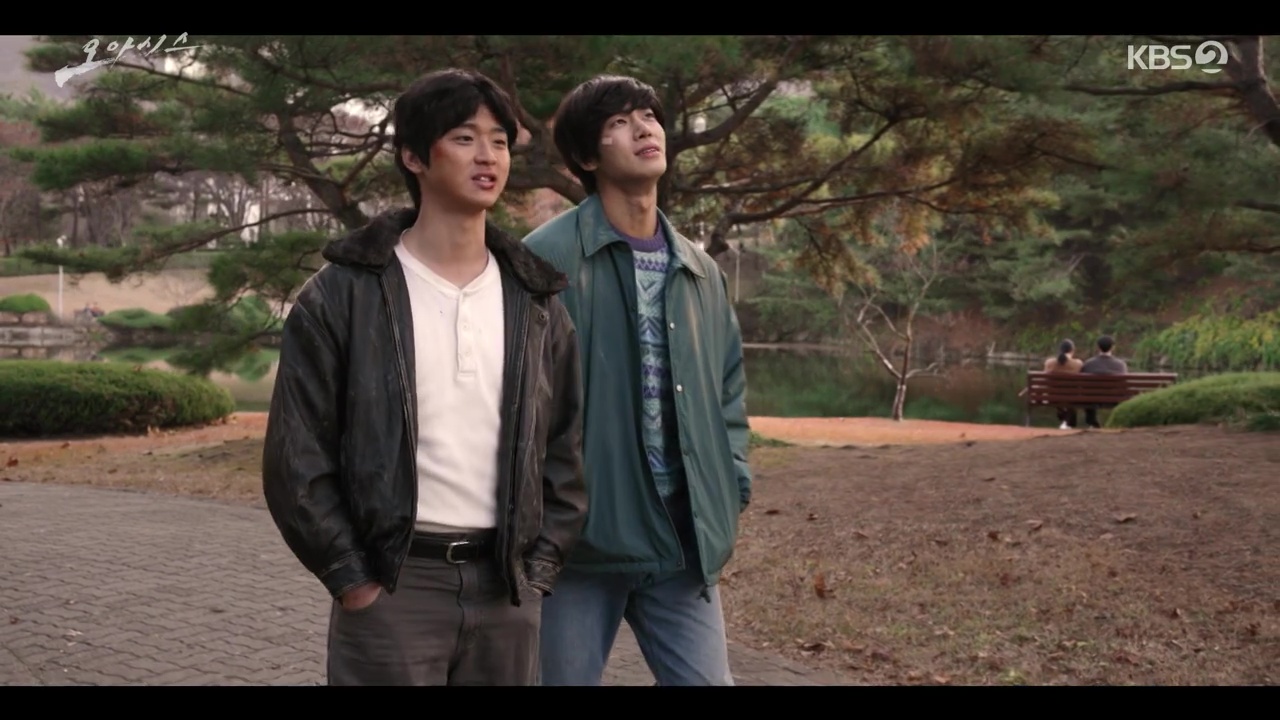
These are some action-packed episodes — from student protests to gang fights — giving our heroes a chance to show their stuff. As we move from the countryside to the city — and from economic strife to personal struggles — our story weaves a world where friends and adversaries are one and the same. Plus: more high drama on the family front.
EPISODES 3-4
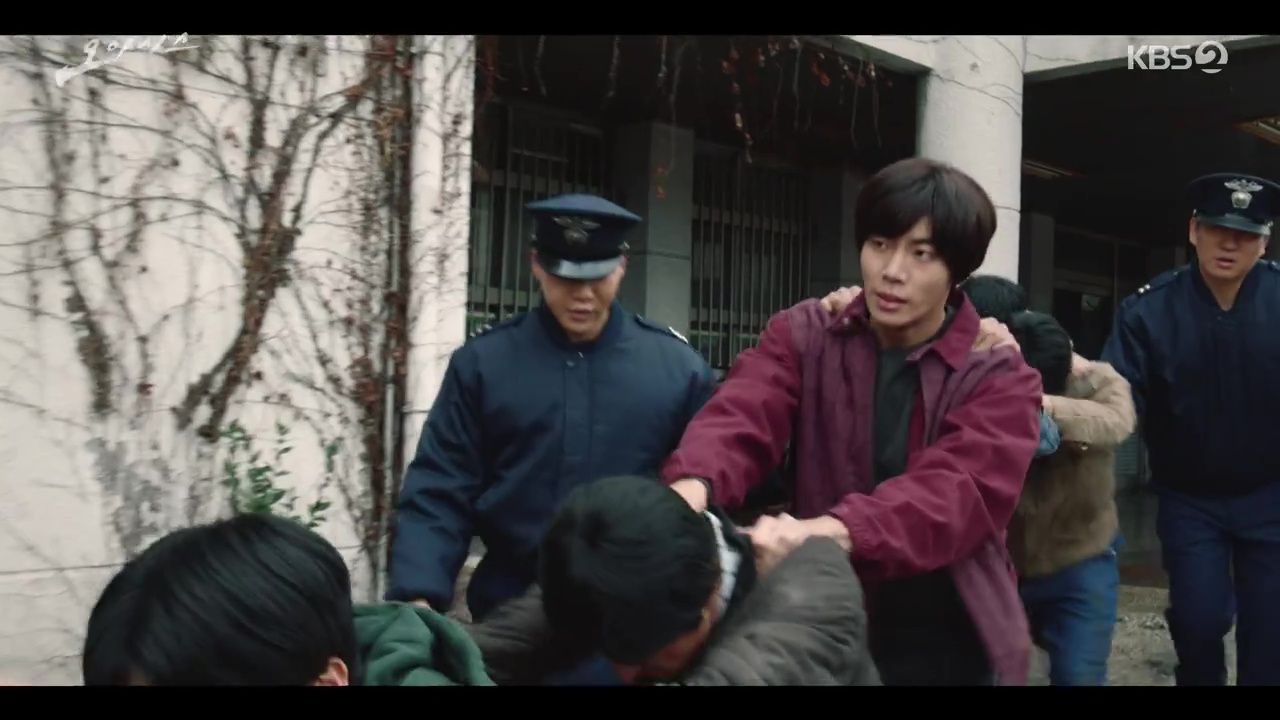
We’re following three separate threads now as our leads take on their own unique challenges following the time jump last week. The heart of the story, though, is how these threads intersect and keep our main characters in each other’s lives.
For me, the weight of these episodes comes from the bond between Doo-hak and Cheol-woong. As Cheol-woong tells his mother, he and Doo-hak are “inextricably connected” — whether they like it or not.
When we ended last week, we saw that Cheol-woong had become involved in the student protests and Doo-hak had reappeared, asking Cheol-woong to pay off his debt by becoming a prosecutor. We learn this week that while Cheol-woong was protesting, he was once arrested and coerced into becoming an informant for the government. Choong-sung was behind the coercion, using his military background and current high-ranking position to send Cheol-woong to the army.
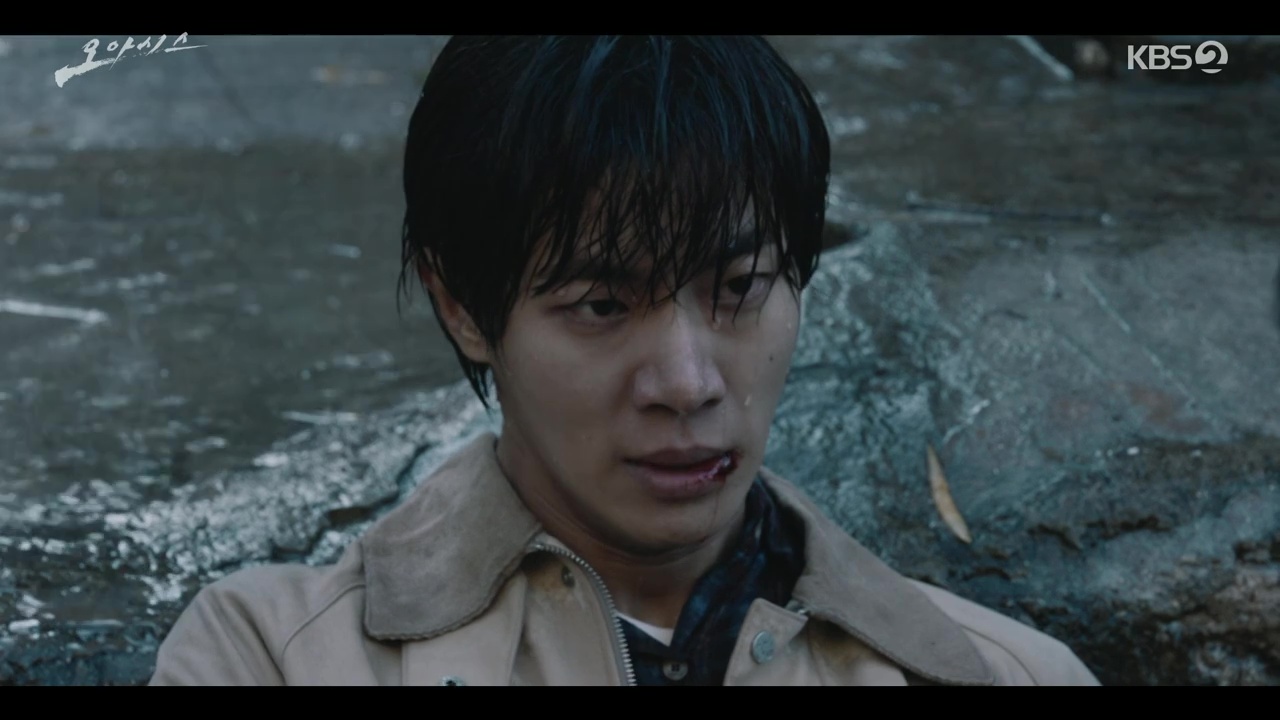
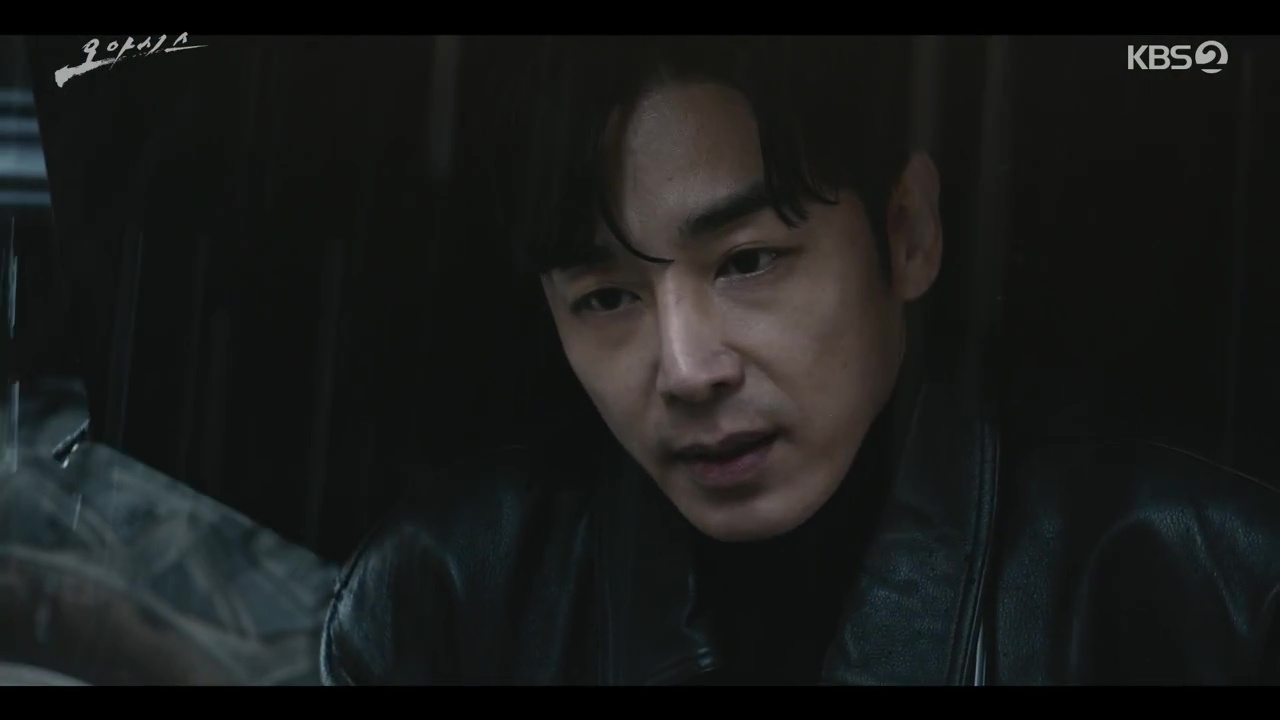
There, Cheol-woong meets Choong-sung’s right-hand man, OH MAN-OK (Jin Yi-han). Man-ok tells Cheol-woong that they’ll discharge him immediately if he agrees to be a spy. Cheol-woong says no, and is tortured until he agrees. When he’s released, they ask him to collect information about the protest leadership.
After this, Cheol-woong is continually under Man-ok’s thumb, getting beaten and threatened with death if he doesn’t carry out his duties. Still, Cheol-woong never gives up the names of the leaders. One night, Man-ok and some officers break up a meeting on campus and arrest many of the students. Cheol-woong injures his ankle and is caught, but then he’s let go.
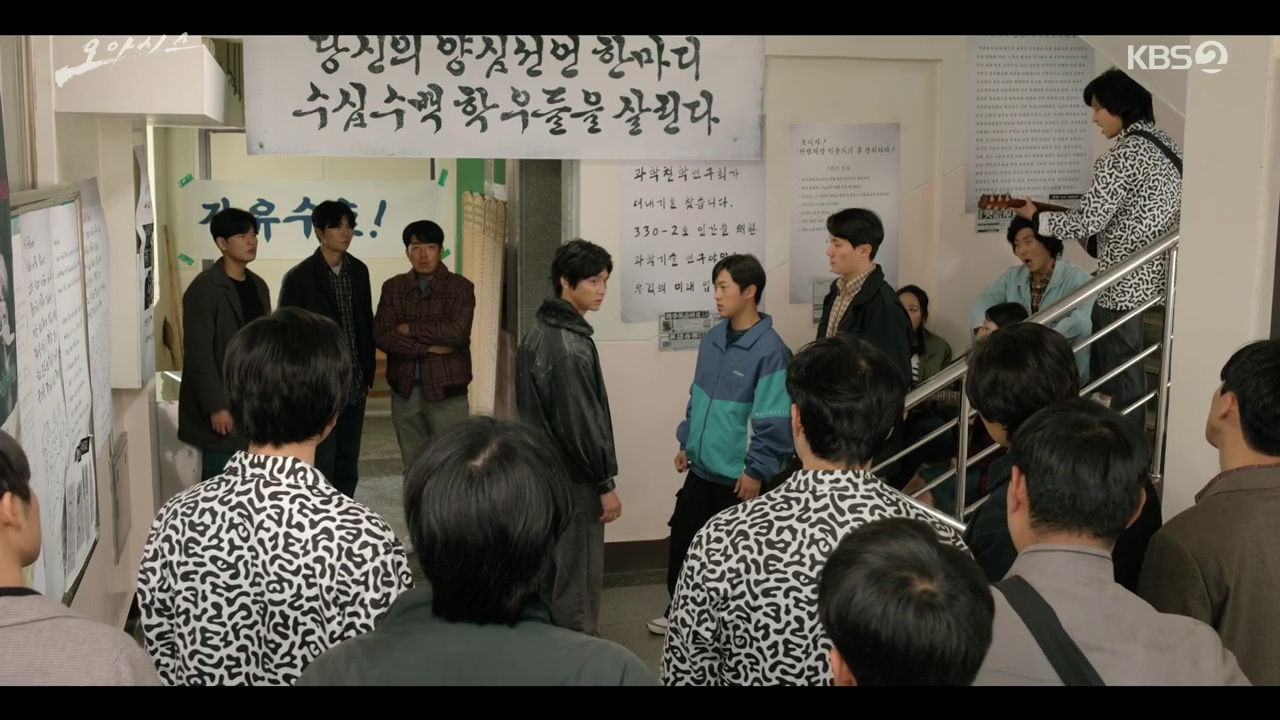
The fact that Cheol-woong is not jailed is a red flag to his fellow activists. They hold him on campus and try to get him to confess that he’s collaborating with the other side, but Cheol-woong claims he’s innocent.
Lucky for Cheol-woong, Doo-hak has spent the night at his house and realized he never came home. Doo-hak goes to campus and is met with aggression as the activists try to hide Cheol-woong from him. Doo-hak then fights off about fifty students, making his way upstairs to Cheol-woong.
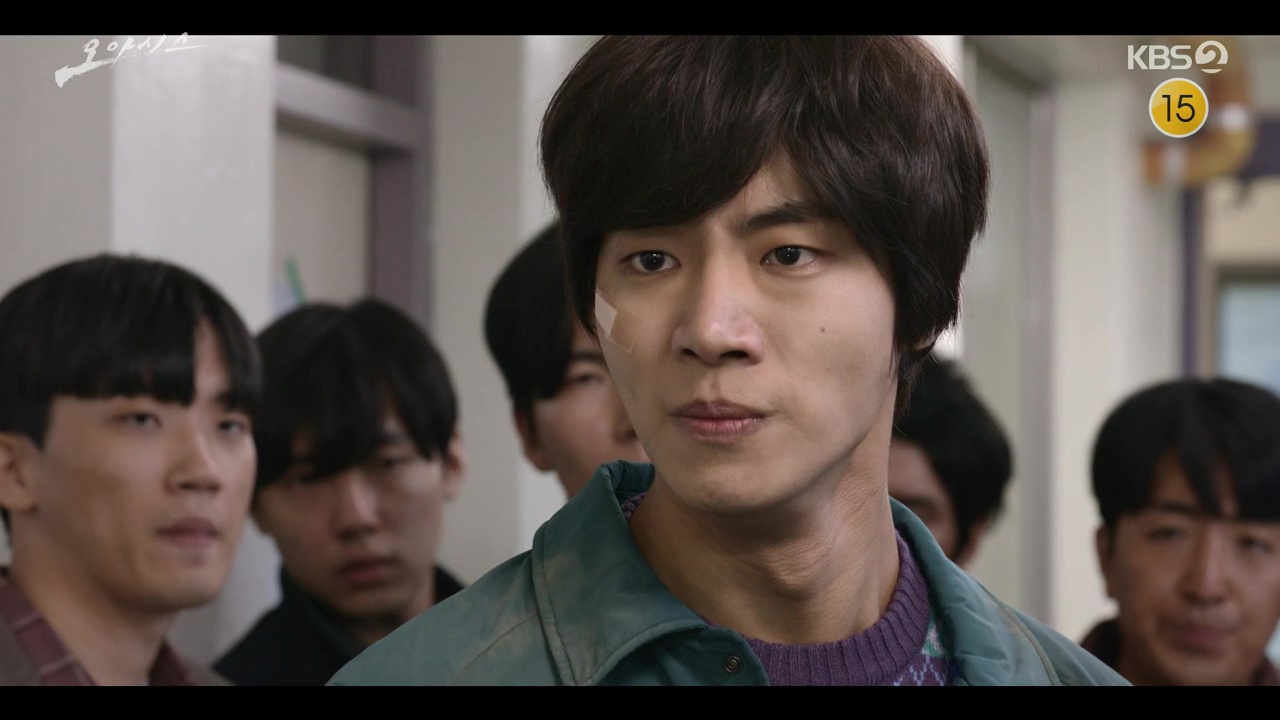
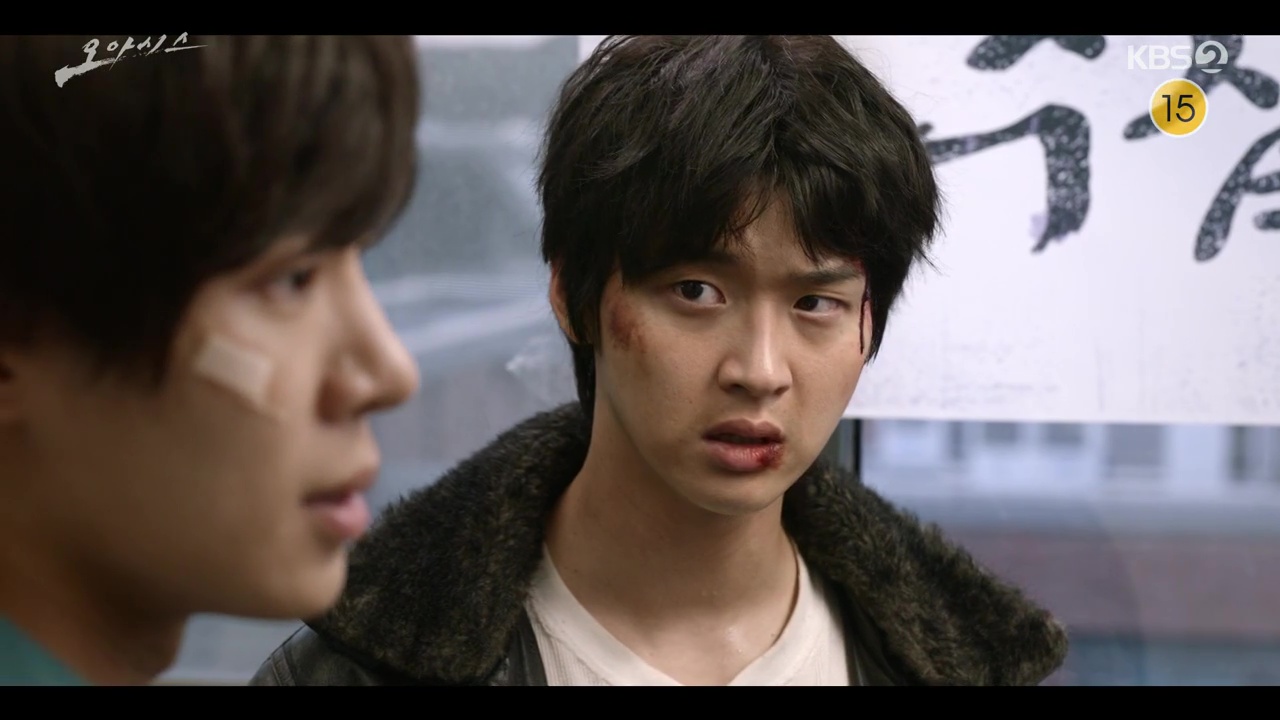
As they’re leaving, the protest leader — the one Cheol-woong never turned in — tells Cheol-woong not to be shameful. Cheol-woong screams that if he were really working with the government, none of them would be standing there right now. The look on Doo-hak’s face says that he gets exactly what’s going on, and he pushes Cheol-woong to leave.
When the two old friends are outside, it’s just like when they were young and Doo-hak used to protect Cheol-woong from bullies. But the bond between them has changed because Cheol-woong doesn’t have the upper hand anymore. Doo-hak points out that Cheol-woong will now be unusable to the government as an informant because he’s been kicked out of his group.
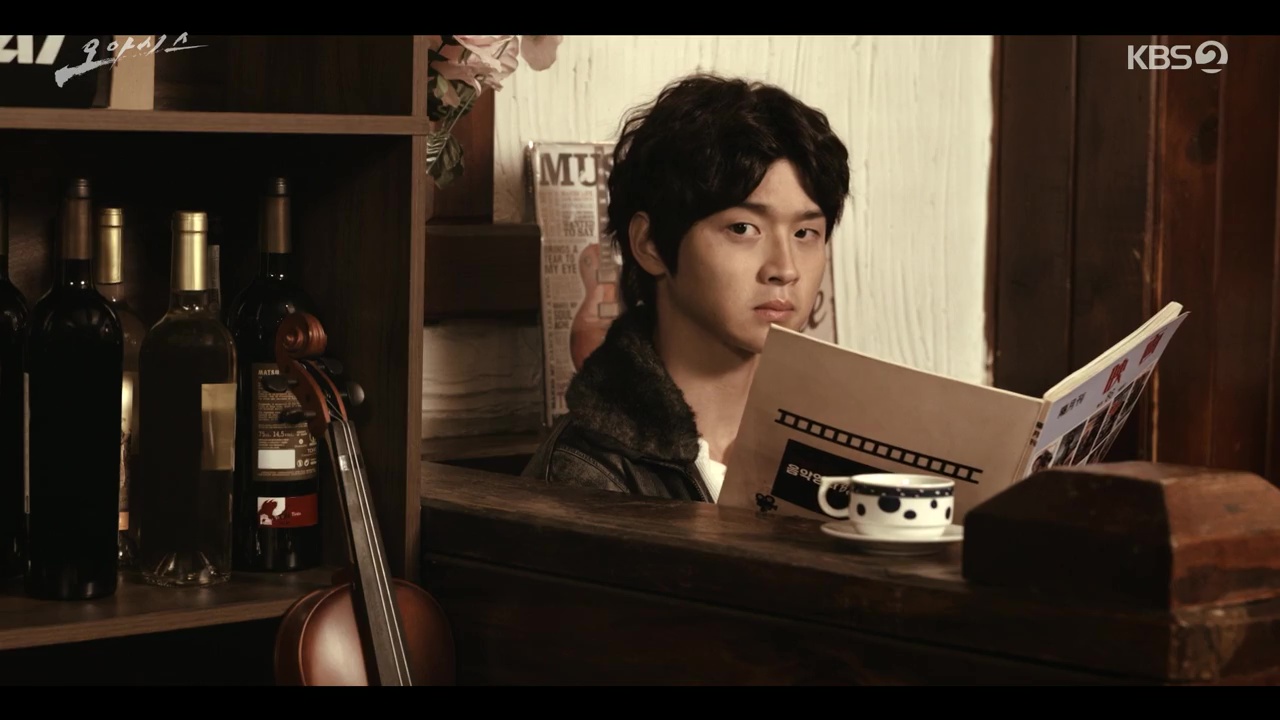
If you’re wondering (as I was) how Doo-hak was able to fend off all those students, we later see that in prison he was taking down groups of goons left and right, which earned him both enemies and allies. Now that everyone is on the outside, they’re forming alliances to carry out their next crimes.
Doo-hak first gets involved with a group that commits real estate fraud. He sees Jung-shin from afar, handing over her theater to her aunt and uncle because she can’t pay her debts. Doo-hak then convinces his new criminal buddies to target the aunt and uncle and get them “to buy” a building from them (which the fraudsters don’t actually own). Since the buyers don’t have enough cash, they use the contract to Jung-shin’s theater as part of the payment.
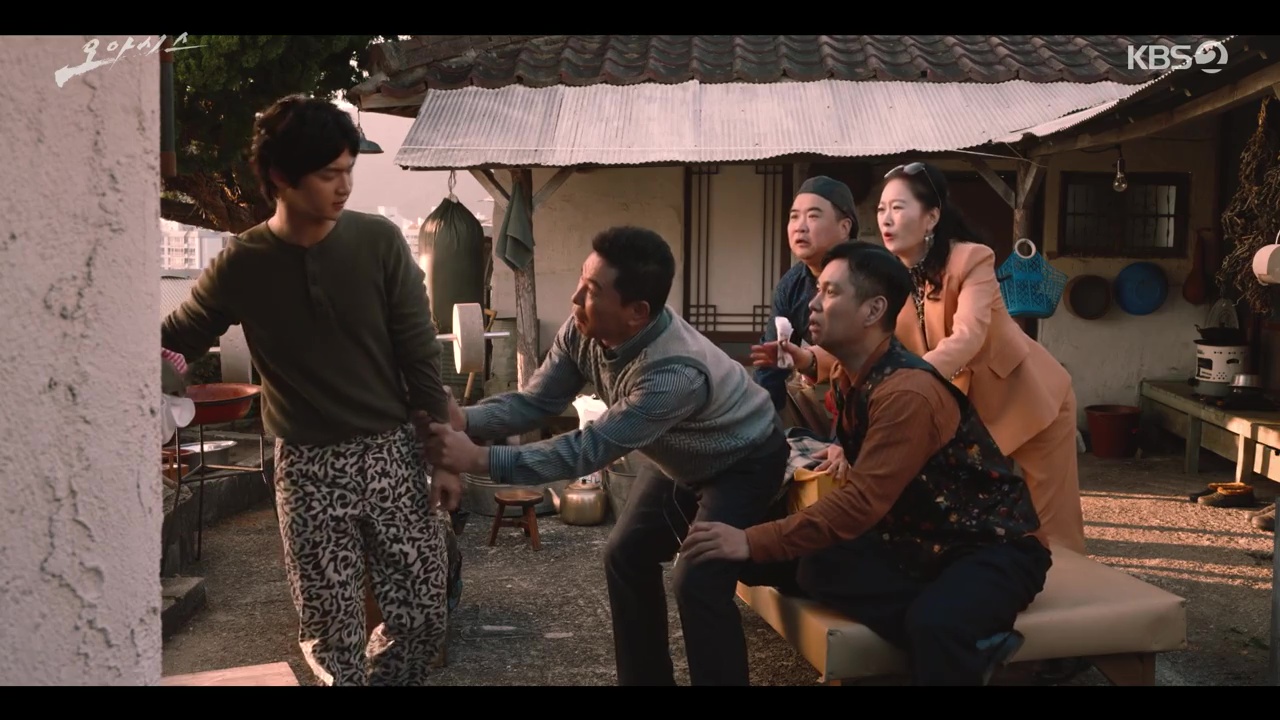
Doo-hak takes the contract — which is all he wanted — as his cut of their profits and the group is ready to disband. But on their way out the door, they get shaken down by another criminal gang. Doo-hak — again, by himself — kicks the crap out of all of them. We learn that this gang is headed by YEOM KWANG-TAK (Han Jae-young) — someone they know and fear. This scares the fraudsters so much, they follow Doo-hak home and make him their leader.
Soon, one of the group, GO POONG-HO (Lee Han-wi), is captured by Kwang-tak. Doo-hak goes to rescue Poong-ho, concocting a scheme to get Kwang-tak to accept their group into his syndicate. It works and Doo-hak becomes a leader in Kwang-tak’s gang.
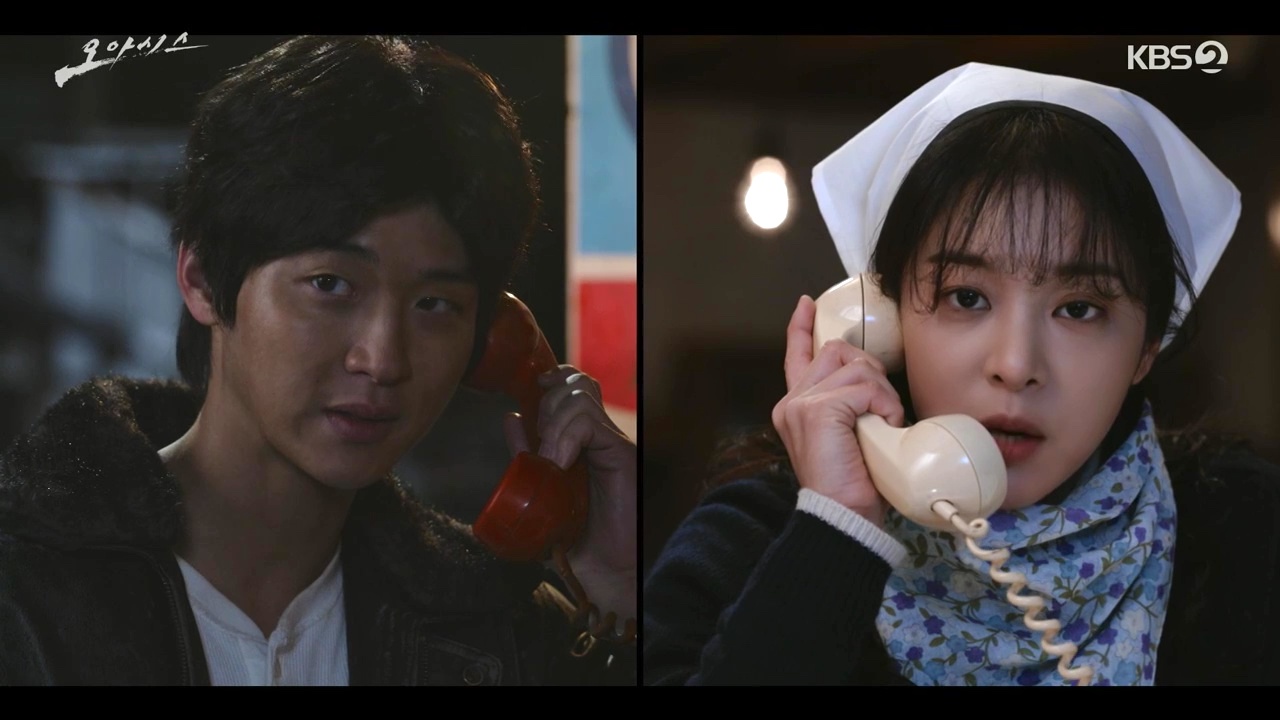
Prior to becoming a gang leader, Doo-hak spends some time stalking Jung-shin. She’s living in Seoul, sort of accidentally, because she’s begun working for a film producer, CHA GEUM-OK (Kang Ji-eun). Geum-ok promises to pay off Jung-shin’s debt and take over her theater, giving Jung-shin the opportunity to buy it back one day.
Geum-ok puts Jung-shin in charge of a film studio and gives her a place to live. The day she moves in, her phone keeps ringing, but no one is there. She curses out the person on the other end, not knowing it’s Doo-hak, calling from a payphone outside her window. He wants to hear her voice but he doesn’t say anything — and we learn that he broke up with her because it was her father’s dying wish.
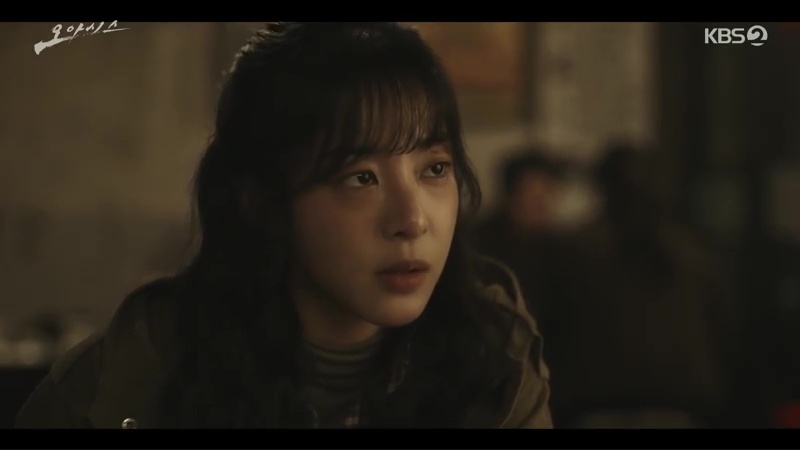
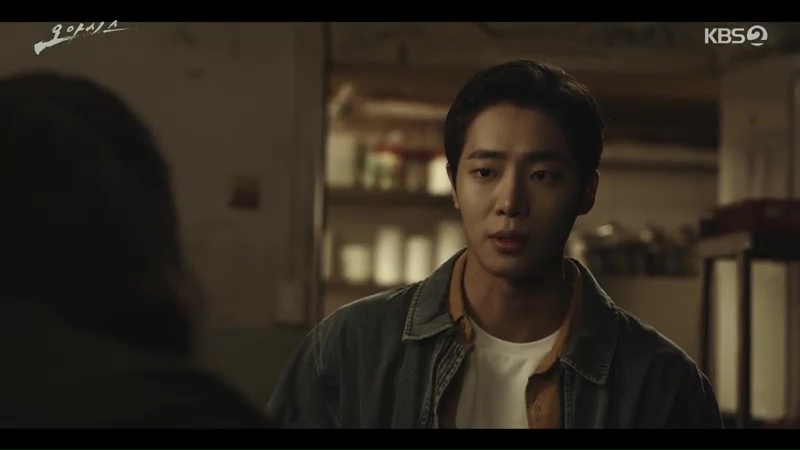
Doo-hak and Jung-shin run into each other one day when Doo-hak’s gang is interrupting a movie shoot. She sees he’s become a thug and berates him for it. He says it’s her fault he was in prison (which is just low and wrong). He tells her that he’s a different person now — someone who no longer believes that he’ll be rewarded for loyalty to family and country. “In this twisted world, it’s only right to live in a twisted way.” She retorts that he’s become trash.
That night, Jung-shin seeks out Cheol-woong as a drinking partner and begs him to bring Doo-hak out of the life he’s living. Cheol-woong goes to see Doo-hak and report Jung-shin’s message, joking that he can’t stop Doo-hak from what he’s doing because he’s trash too. Then he discloses that Jung-shin is not over Doo-hak.
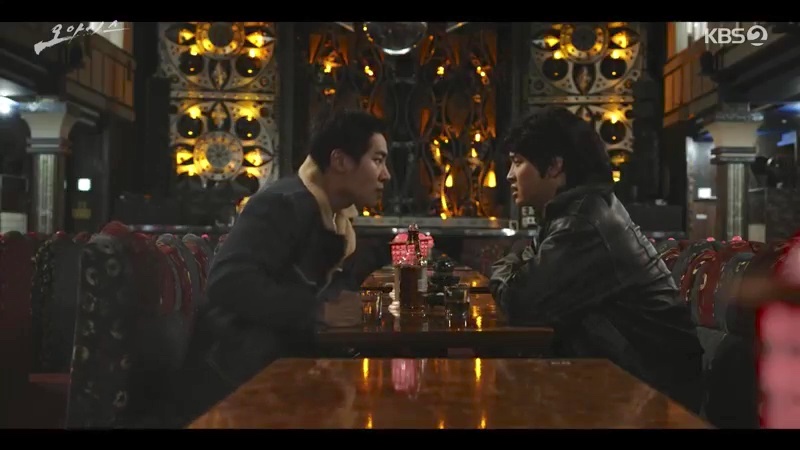
Doo-hak brushes off the comment and Cheol-woong asks if he can date her now. Doo-hak says there’s nothing between them anymore, but Cheol-woong still shouldn’t date her. “You just said it yourself; you’re trash too. Jung-shin shouldn’t date trash like us.” Suddenly, Cheol-woong reverts to his childhood self, yelling that Doo-hak isn’t the only victim and asking why he can’t date her. (I had been cheering for these two, but this is the moment they lost my support.)
Meanwhile, Choong-sung is putting the moves on Cheol-woong’s mom, Yeo-jin. He’s set her up with a house and a job in Seoul and makes it clear he wants to get back together. She plays hard to get but it’s obvious she’s interested too. At one point, Man-ok asks Choong-sung what will happen if Yeo-jin finds out what they did to Cheol-woong. He says she can’t ever find out. So, Choong-sung reveals to Yeo-jin that Cheol-woong was an informant, but says he has no idea who was responsible for it.
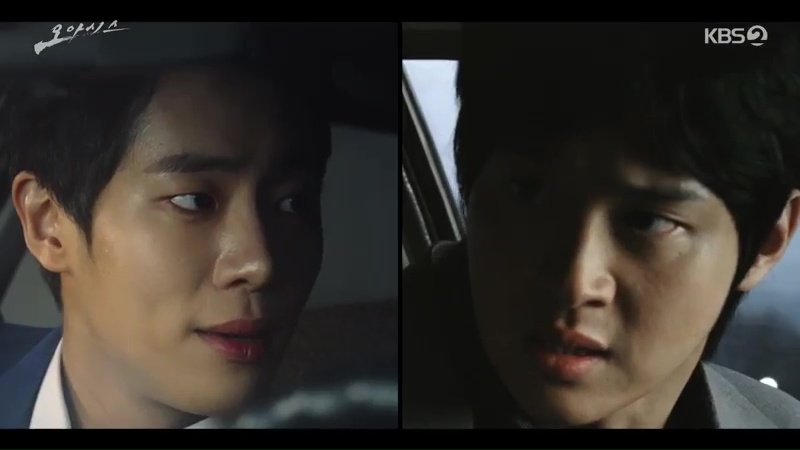
A year later, Doo-hak is advancing in Kwang-tak’s organization — trading in his combat boots and aviator jacket for fresh suits — and Cheol-woong is graduating. Doo-hak reminds Cheol-woong that it’s only the beginning of his promise to pay back his debt — he has the qualifications, but now he has to get the position. Cheol-woong is cocky, saying it’s also the beginning of making Jung-shin his woman. He knows Doo-hak isn’t over her and suggests they compete again, like in high school.
At the same time, we get a final shot of Yeo-jin and Choong-sung. She’s asking for his help to make Cheol-woong a prosecutor. He says there’s nothing he can do because Cheol-woong has a record for protesting. Even as an informant, he wasn’t “helpful to his country.” Choong-sung concludes that Cheol-woong is smart like his mother, but stubborn like his father. Yeo-jin agrees that he’s just like his father — his biological father. Then she lays her final card on the table: “Make Cheol-woong a prosecutor, as his father.”
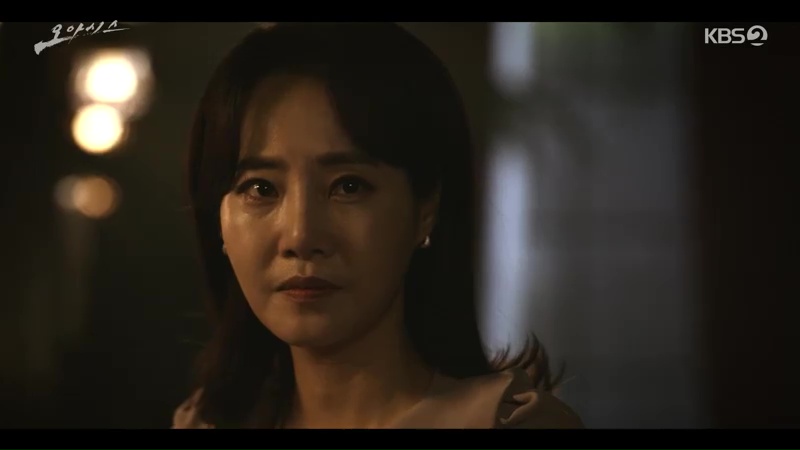
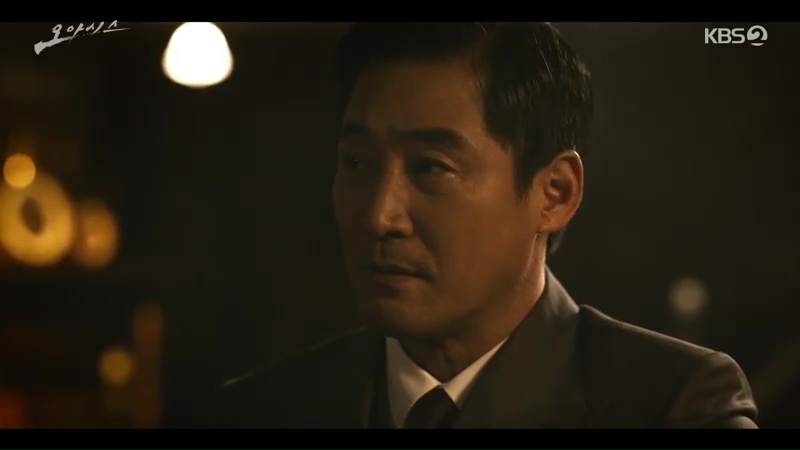
Oh my. I genuinely was not expecting that last reveal. I hope it doesn’t mean we’re headed away from political and economic stakes to focus strictly on family and interpersonal conflict. Episode 3 was so enthralling because it heightened the nuance. We had some real villains (Choong-sung and all the parents) but the main relationships were complicated and human. Sometimes our characters failed at being good people and sometimes they succeeded, but the definition of “good” was constantly redefined by the circumstances.
Plus, I loved the new bond that was forming between Cheol-woong and Doo-hak now that they’re on more equal ground. I wanted to see them team up and fight the outside world that contributed to both of them living a tough life. But, the show has already extricated Cheol-woong from the protest situation and is turning his character back around, as if he’s been through nothing.
The most worrying part of these episodes is that they’re setting up Jung-shin to be the only obstacle between Doo-hak and Cheol-woong. After the great setup last week — showing us all the complex troubles between our male leads — the worst thing the drama could do right now is make this a fight about a woman. Jung-shin was never really the problem, just a symptom. But, it’s still early, so I’m crossing my fingers: more political conflict, less shallow competition.
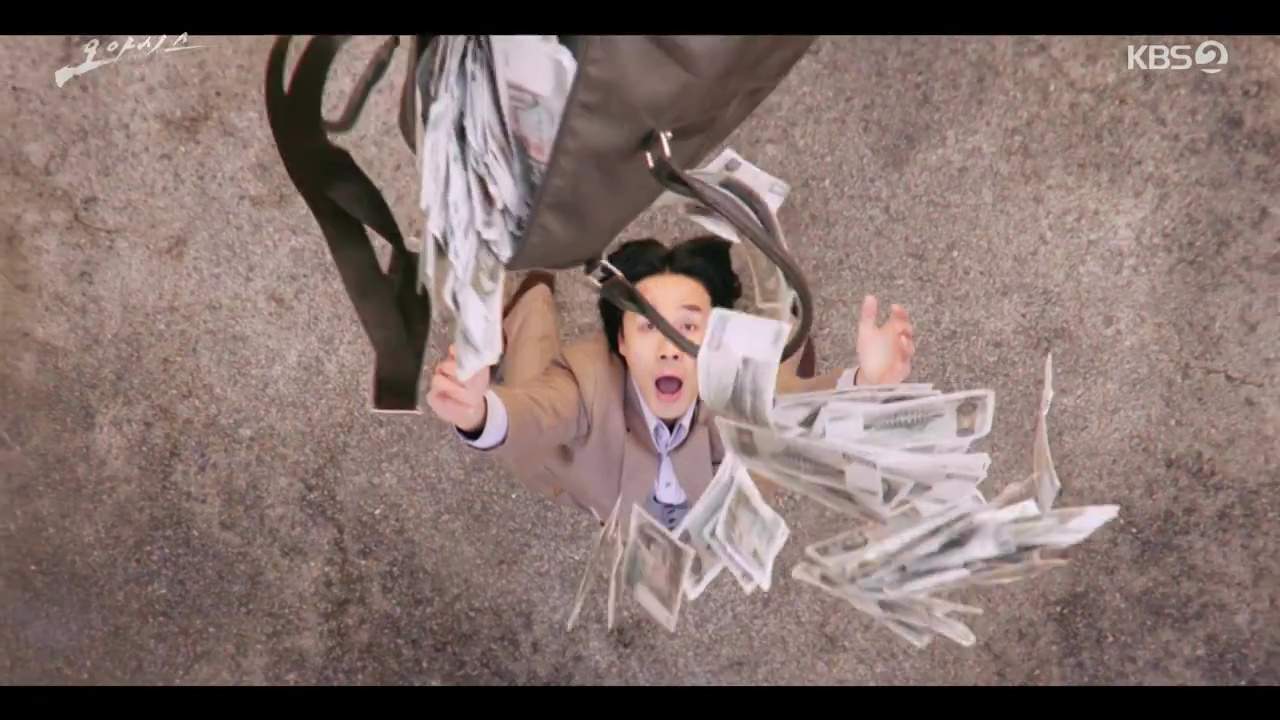
RELATED POSTS
[ad_2]
Source link

